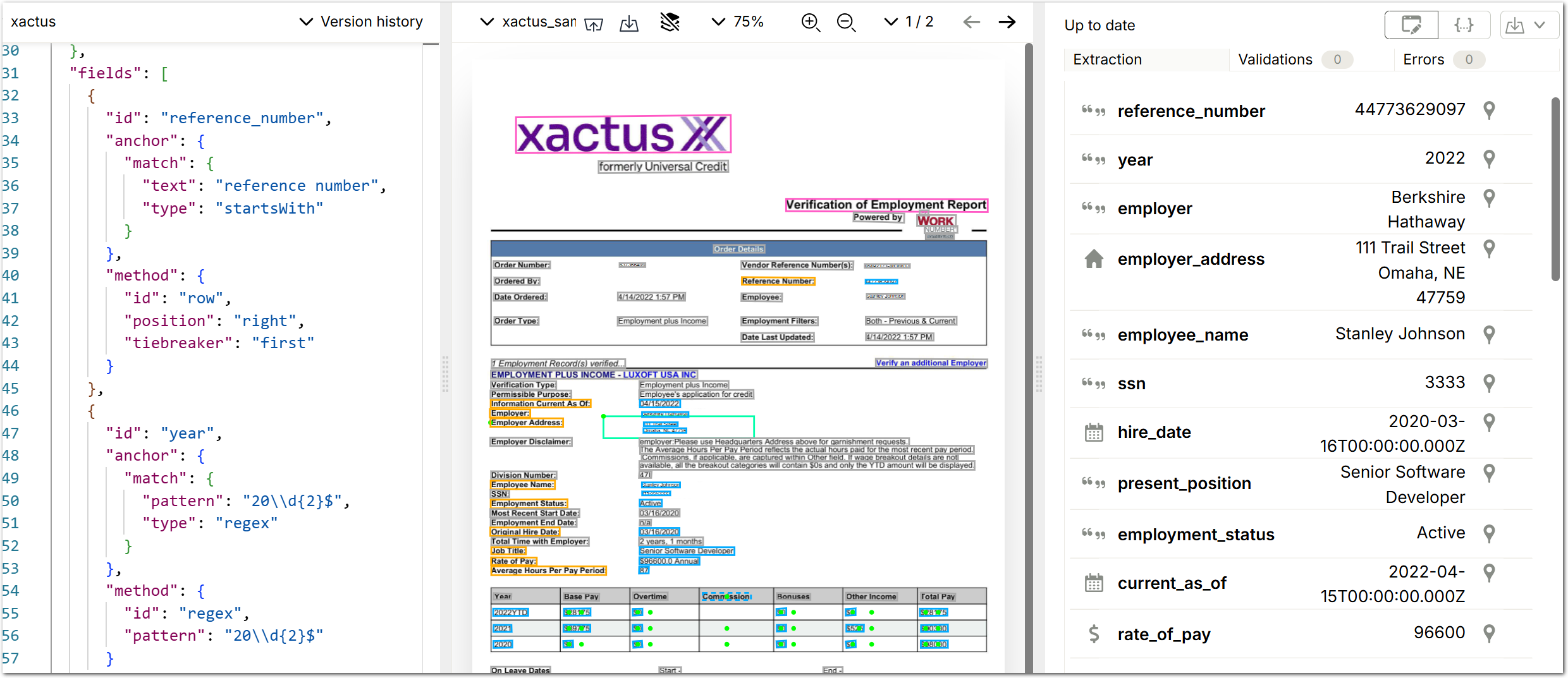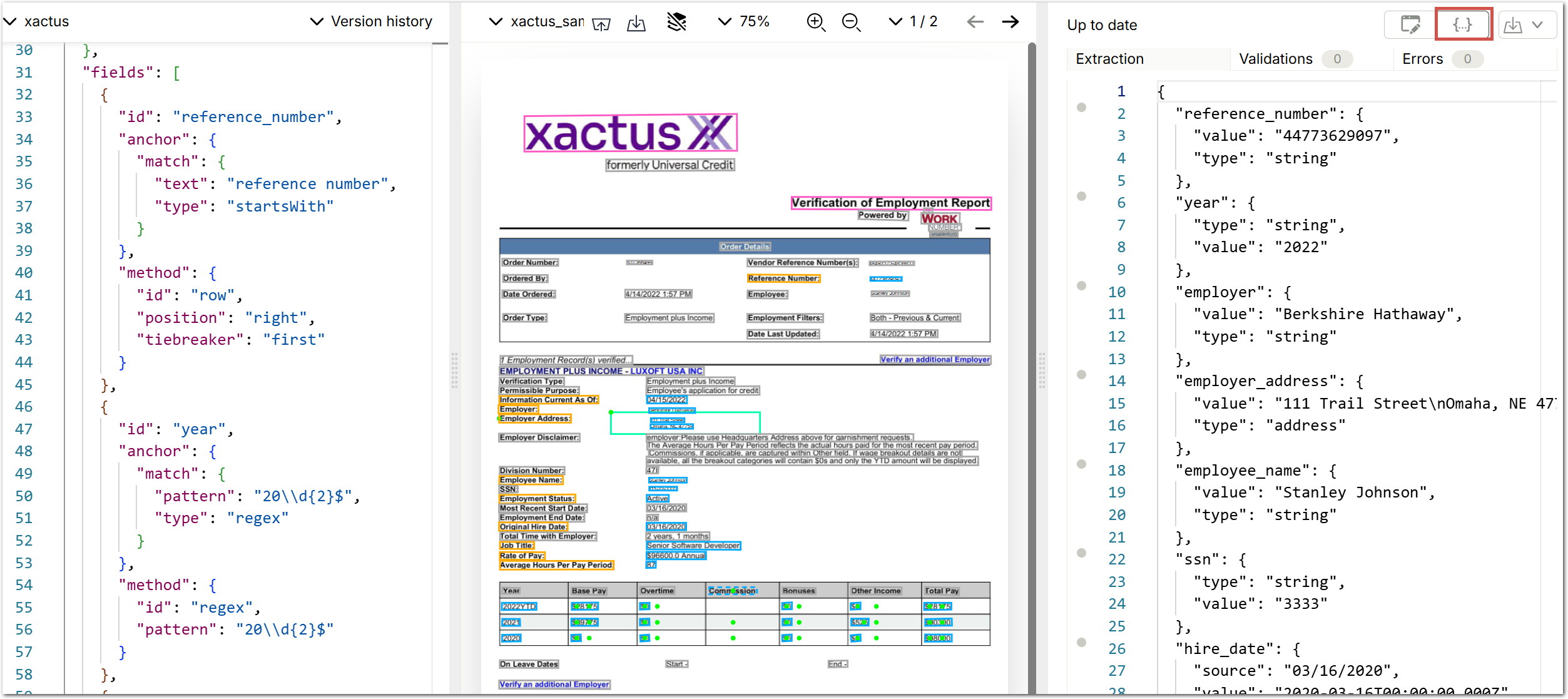June 2025
In the last month, Sensible removed a visual tool for authoring large language model (LLM) prompts. Stay tuned for new authoring features. We added advanced functionality for layout-based methods, enabled stricter criteria for LLM output, and introduced new features for advanced output schema manipulation.
Deprecation: Sensible Instruct visual authoring tool
We've removed Sensible Instruct, a visual tool for authoring LLM-based SenseML methods. By default, you now author all SenseML methods in JSON and view extracted document data in a compact visual format. You can switch between viewing output visually or as JSON.
Compact visual view of output:

JSON view of output:

New feature: Reuse anchor variables for layout-based methods
You can now name and reuse anchors as variables for concise syntax. Anchors are labels that locate data for layout-based methods.
Example syntax:
"fields": [
{
/* declare a complex named anchor variable for later reuse */
"type": "anchorDefinition",
"name": "liability_workers_comp",
"anchor": {
"start":{"text":"Certificate of liability insurance","type":"equals"},
"match":{"text":"workers compensation","type":"equals"},
"end":{"type":"equals","text":"the acord name and logo are registered marks of acord"}
}
},
{
/* extract text from a box 1.15" to the right of the named anchor */
"id": "subrogation_waived",
"method": {
"id": "box",
"offsetX": 1.15,
"position": "right"
},
"anchor": {
"ref": "liability_workers_comp"
}
},You can conditionally assign values to anchor variables depending on previously extracted document data. For example, assign a "customer_id" anchor the value of either "customer number" or "identificación del cliente" depending on the form's language. For more information, see Anchor variables.
Improvement: Faster LLM performance for short documents
Sensible improved the extraction speed for documents 5 pages or fewer in length. To enable this performance improvement, set the Search By Summarization parameter to true. For more information about this parameter, see Query Group and List.
Improvement: Strict mode for incorrect LLM answers
You can now configure the Query Group method to return null for a response that an LLM characterizes as inaccurate. To do so, set "confidenceSignal": "strict". This forces Sensible to return null for a field if an LLM reports that its confidence signal is incorrect_answer.
For example, if your error tolerance is low, you can use the strict option to return "customer_name": null for the following field:
"customer_name": {
"value": "Anne Murray",
"type": "string",
"confidenceSignal": "incorrect_answer"
},
For more information, see Query Group and Qualifying LLM accuracy.
New feature: Advanced JsonLogic operations
In addition to the existing JsonLogic operators, Sensible released the following new features: